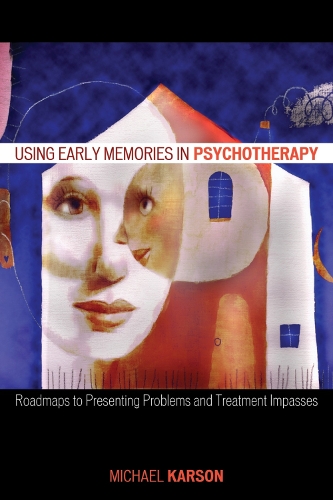
Using Early Memories in Psychotherapy: Roadmaps to Presenting Problems and Treatment Impasses
(Paperback)
Publishing Details
Using Early Memories in Psychotherapy: Roadmaps to Presenting Problems and Treatment Impasses
By (Author) Michael Karson
Jason Aronson Publishers
Jason Aronson Publishers
27th April 2006
United States
Classifications
General
Non Fiction
616.8914
Physical Properties
Paperback
244
Width 163mm, Height 233mm, Spine 18mm
376g
Description
Certain intrinsic features of early memories make them analogous to life problems and to the therapy relationship: childhood tends to imply situations that are confusing, disempowered, or impulsive, and relationships that are parental, intimate, or defining. When early memories are examined, the results can be personally meaningful to the individual and relevant to the presenting problem and to the therapy. This book recommends strategies for using early memories to enhance the working alliance, to make psychological sense of presenting problems, and to resolve treatment impasses.
Reviews
This concise yet clinically rich book is an insightful guide to the ever perplexing labyrinth of memory as it affects our emotional lives. Deftly, it interweaves early Freudian notions, views of Adler, Mayman, and Bruhn, and contemporary advances in the understanding of memory-related phenomena. The result is a striking elucidation of the multi-layered meaning and impact of early experience upon us. Side-by-side this theoretical intrigue exist superb technical innovations that enhance our capacity for understanding and enrich our skills as therapists! -- Salman Akhtar, MD, professor of psychiatry, Jefferson Medical College; training and supervising analyst, Psychoanalytic Center of Philadelphia
Dr. Karson smoothly integrates psychoanalytic approaches with systems theory and behaviorism, creating a book that should be useful to anyone practicing psychotherapy. The overarching idea of basing treatment on the client's vocabulary and the client's narrative patterns is especially welcome at a time when many practitioners seek a magic bullet designed to work on everyone. Karson's sensitive handling of clinical material, presented on a realistically personal level, makes this a must-read. It is refreshing to see an approach to therapy at this moment in our professional history. -- Stephen Bloomfield, Ed.D.
Author Bio
Michael Karson teaches at the Graduate School of Professional Psychology at the University of Denver. Prior to that he practiced psychotherapy and consulted in the child welfare system for 25 years in Massachusetts. He is the author of Patterns of Child Abuse: How Dysfunctional Transactions Are Replicated in Individuals, Families and the Child Welfare System and he is senior author of 16PF Interpretation in Clinical Practice: A Guide to the Fifth Edition as well as an attorney.
